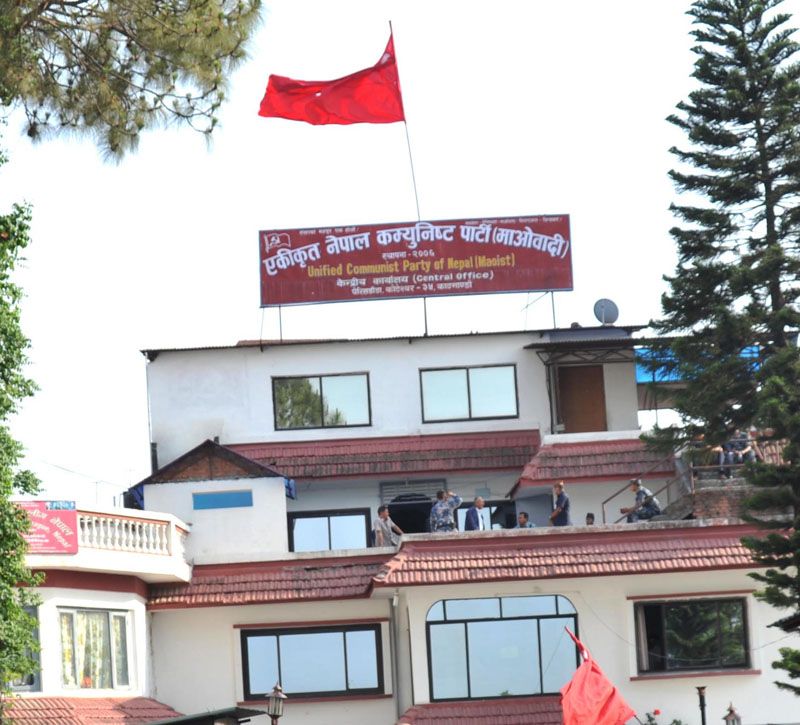UCPN-M working to amend laws as per nine-point agreement
Kathmandu, May 9
Major coalition partner of the KP Sharma Oli-led government Unified CPN-Maoist is discussing amendment of existing transitional laws so as to bring all the cases related to the conflict period within the jurisdiction of the Truth and Reconciliation Commission.
Four days after the nine-point agreement with Prime Minister K P Sharma Oli, the UCPN-M that had led a decade-long violent war against the state, is preparing a work plan to amend the existing laws.
“All necessary amendments would be made to bring all conflict era cases under the jurisdiction of TRC and ensure that the TRC carries out its activities independently,” said UCPN-M Secretary Barshaman Pun, who also heads the legal department of the party.
Pun said the two parties were also discussing establishing a temporary specialised court to look into all conflict era cases as the TRC act is silent on the issue.
UCPN-M was dissatisfied with the Oli-led government after it remained indifferent towards its concerns even when the party’s standing committee informed Oli about their issues.
The third point of the nine-point agreement between Prime Minister KP Sharma Oli and UCPN-M Chairman Pushpa Kamal Dahal on May 5 states that as per the spirit of the Comprehensive Peace Accord, the process of amending laws would be taken ahead within 15 days with a concrete work plan.
The fifth point of the same agreement states that the lands that were bought and sold during the conflict era with domestic papers would be registered with those proofs.
Pun further said necessary laws would be made or the cabinet would take necessary decision to ensure that transactions of the lands made during the conflict time be registered. He said there are more than 5,000 such transactions that need to be recognised by the state.
A taskforce formed to study such transactions under the leadership of UCPN-M leader Janardan Sharma had submitted a report suggesting that ways to resolve the issue.
According UCPN-M lawmaker Ram Narayan Bidari, the TRC Act was faulty and that did not speak about which court the TRC should send the cases to. “Therefore the TRC Act needs to be amended and a specialised court should be constituted to look after all conflict era cases,” he said.
Asked whether it was justifiable to bypass the regular courts, Secretary Pun said there was constitutional provision to form such temporary courts to look after specific cases and that did not mean bypassing the general courts.
Meanwhile, expressing serious concern about exclusion of issues raised by the nine-point agreement in the government’s policy and programmes revealed yesterday, the parliamentary party meeting of the UCPN-M today decided not to support the government during the discussion of the budget if the CPN-UML did not commit to incorporate those issues in the upcoming budget.
However, advocate Dinesh Tripathi claimed that the nine-point agreement was highly objectionable and against the idea of independent judiciary and rule of law.
The court has already decided that transactions made during conflict time cannot be registered by the state.
He further said that the CPA has clearly upheld the rule of law and human rights.






